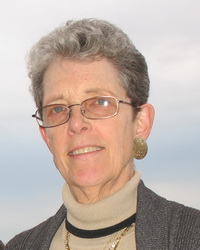An NBA player comes out and a UW sociology professor retools her lecture
On Monday, Washington Wizards center Jason Collins became the first active professional athlete from one of the four major U.S. professional sports — baseball, basketball, football and hockey — to come out as gay.

Piliavin
The same day, Jane Allyn Piliavin, who is teaching the course “Sociology of Sport” in the upcoming summer session, had one immediate thought: “I’m going to have to change my lecture on gays in sports.”
Before Collins made his announcement in Sports Illustrated, Piliavin could only point to an Australian rugby player who came out while still playing the sport, one that is wildly popular in that country. American male professional athletes have come out as gay, but only after their playing days were over, including former NFL player Esera Tuaolo in 2002, says Piliavin, a professor emerita of sociology.
Inside UW–Madison talked with Piliavin about gays in sports in the wake of the Collins news. An edited transcript of the interview follows.
Inside UW–Madison: What is the significance of this news and do you think we’re going to see other male professional athletes making the same announcements in the near future?
Jane Allyn Piliavin: Tuaolo, when he came out after his playing career, he explicitly said he was afraid to do it before because people would take out his knees. There were quotes from other guys saying “you know it would make me very uncomfortable because you know, birds of a feather, just because one of my co-players is gay, people are going to look at me funny.” So it will be extremely interesting to see what happens. I think that probably most of that was exaggerated and that once it’s a fait accompli, people will just accept it and move on, but we don’t know.
IUW: A lot of top female athletes have come out with a lot less fanfare, most recently WNBA top draft pick Brittney Griner, who just signed an endorsement deal with Nike. What are the roadblocks for gay male professional athletes to come out?
Piliavin: The whole issue of sexual orientation gets so wrapped up in men’s feelings about their own masculinity in ways that I don’t think women are as threatened about their femininity. I don’t know quite why that is. Maybe it’s because there’s so much pressure on guys to be big and tough and strong and macho and if there’s any kind of suspicion they’re not, they think that’s going to diminish them. It’s just been known for a very long time that there are a reasonable number of women athletes who are indeed lesbians. So it’s just generally more accepted, and I like that it’s greeted with a yawn.
IUW: There have been reports in the past about an active NFL player or players coming out. Do you think an NFL player coming out is an even bigger deal?
Piliavin: Yes, I think so because it’s more of a contact sport and, if it’s possible, it’s even more macho. Everybody knows there are gay players in the NFL because players have come out after being in the NFL and it’s pretty unlikely that the ones who have come out are the only ones who have been in the league. But I think that will be, in fact, a bigger deal.
IUW: What will you be watching for in the aftermath of Collins’ announcement?
Piliavin: This guy is a free agent; he’s not a superstar. Everybody was saying all these laudatory things about him, but a guy who’s moved around like that and he’s 34 — it will be interesting to see if anybody picks him up. That, I think, will be the really significant thing: if after this announcement a team hires him. If they don’t, then I think that will put a damper on other people coming out in any of the other sports.
Tags: LGBTQ, UW Athletics
